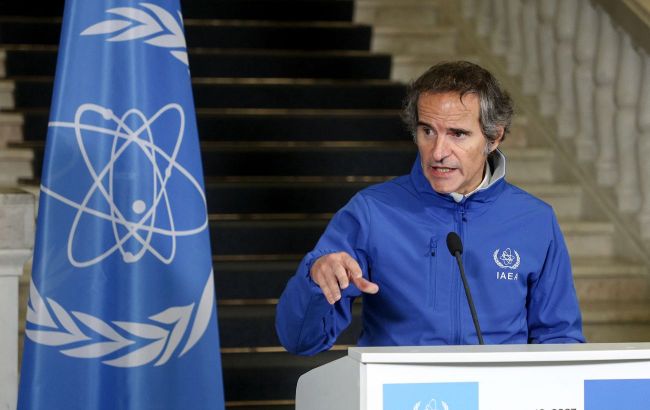Iran agrees with IAEA to reopen doors for nuclear checks
 IAEA Director General Rafael Mariano Grossi (Photo:Getty Images)
IAEA Director General Rafael Mariano Grossi (Photo:Getty Images)
The international community has received a signal about a possible resumption of control over Iran’s nuclear facilities following reports of an agreement reached between Tehran and the IAEA, according to Reuters
On Tuesday, September 9, Iran and the International Atomic Energy Agency (IAEA) announced that they had reached a deal to restore inspections at nuclear sites, including those damaged by strikes from the US and Israel.
The specific details of the agreement have not yet been disclosed, while Tehran warned that the deal would be void if sanctions are reimposed.
The agreements reached between IAEA Director General Rafael Grossi and Iranian Foreign Minister Abbas Araqchi at a meeting in Cairo lay the groundwork for the full restoration of inspection control, which was interrupted after military strikes on Iran’s nuclear facilities in June.
Diplomats emphasize that the crucial issue lies in the details of the agreement, which remain undisclosed. At a joint press conference, Grossi and Araghchi limited their remarks to the modalities - the conditions under which inspections of the facilities would be possible.
Grossi noted on X (formerly Twitter) that practical conditions for resuming inspection activity in Iran were agreed upon in Cairo, calling it a significant step in the right direction.
The deal was reached against the backdrop of threats from European states to reimpose sweeping sanctions against Iran, which had been lifted under the 2015 nuclear agreement with major world powers.
Experts point out that the successful implementation of the agreement would be a key factor in stabilizing oversight of Iran’s nuclear program and reducing tensions in the Middle East.
Three leading European countries have initiated the process of reinstating UN sanctions on Iran, a move supported by Washington. The decision was explained by Tehran’s prolonged violations of the nuclear deal and its refusal to honor international commitments.
Despite public statements about a strategic partnership, Moscow and Tehran do not view each other as reliable allies. Analysts highlight that behind the facade of cooperation lies caution: both countries see their partner not only as a temporary companion but also as a potential rival in the future.

